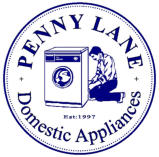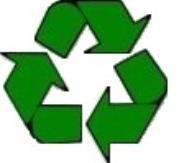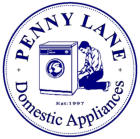
Brand logos and images for informational purposes only - © 2026 Penny Lane Domestic Appliances


Penny Lane Domestic Appliances
What is the WEEE Directive?
The Waste Electrical and Electronic Equipment (WEEE) Directive The WEEE Directive is UK law; the directive was originally an EU wide directive The Directive requires European countries to maximise separate collection and environmentally friendly processing of these items, legislation aims to make producers pay for the collection, treatment and recovery of waste electrical equipment. The regulations also means that suppliers of electrical equipment like us, the high street stores and internet retailers must allow consumers to return their waste electrical equipment free of charge. For Example: A customer buys a new washing machine from us, we will accept free of charge their old washing machine and prevent it going into a landfill site by recycling of it safely. Most of the UK’s WEEE ends up in landfill Most of the UK’s WEEE ends up in landfill, where the Lead and other Toxins it contains can cause soil and water contamination. This can have a harmful effect on natural habitat, wildlife and also human health. The amount of WEEE we throw away is increasing by around 5% each year – making it the fastest growing waste issue in the UK. Many electrical items that we throw away can be repaired or recycled. Recycling items helps to save our natural finite resources and also reduces the environmental and health risks associated with sending electrical goods to landfill. Distributors of new Electric and Electronic Equipment (EEE) have a part to play in reducing the amount of WEEE going into landfill sites. Electrical goods are marked with a symbol Under the WEEE Regulations, all new electrical goods should now be marked with the crossed-out wheeled bin symbol. Goods are marked with a symbol to show that they were produced after 13th August 2005, and should be disposed of separately from normal household waste so that they can be recycled. Here in the UK, you can recycle your old appliances for free at your local recycling centre

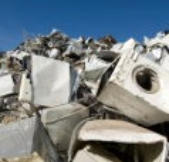
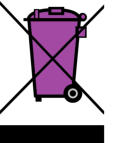


Also, see our guide to: The Energy efficiency label, explained


Electrical goods in landfill

Brand logos and images for informational purposes only
© 2026 Penny Lane Domestic Appliances
What is the WEEE
Directive?
The Waste Electrical and Electronic Equipment (WEEE) Directive The Directive requires European countries to maximise separate collection and environmentally friendly processing of these items The WEEE Directive is UK law; the directive was originally an EU wide directive The legislation aims to make producers pay for the collection, treatment and recovery of waste electrical equipment. The regulations also means that suppliers of electrical equipment like us, the high street stores and internet retailers must allow consumers to return their waste electrical equipment free of charge. For Example: A customer buys a new washing machine from us, we will accept free of charge their old washing machine and prevent it going into a landfill site by recycling of it safely. Most of the UK’s WEEE ends up in landfill Most of the UK’s WEEE ends up in landfill, where the Lead and other Toxins it contains can cause soil and water contamination. This can have a harmful effect on natural habitat, wildlife and also human health. The amount of WEEE we throw away is increasing by around 5% each year – making it the fastest growing waste issue in the UK. Many electrical items that we throw away can be repaired or recycled. Recycling items helps to save our natural finite resources and also reduces the environmental and health risks associated with sending electrical goods to landfill. Distributors of new Electric and Electronic Equipment (EEE) have a part to play in reducing the amount of WEEE going into landfill sites. Electrical goods are marked with a symbol Under the WEEE Regulations, all new electrical goods should now be marked with the crossed-out wheeled bin symbol. Goods are marked with a symbol to show that they were produced after 13th August 2005, and should be disposed of separately from normal household waste so that they can be recycled. Here in the UK, you can recycle your old appliances for free at your local recycling centre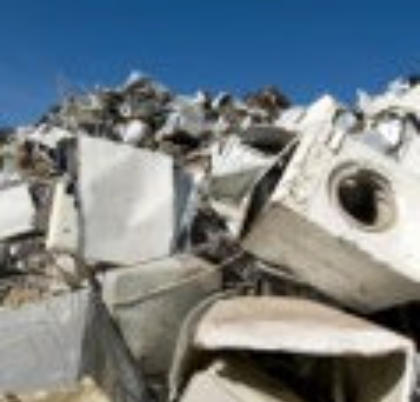

Penny Lane
Domestic Appliances

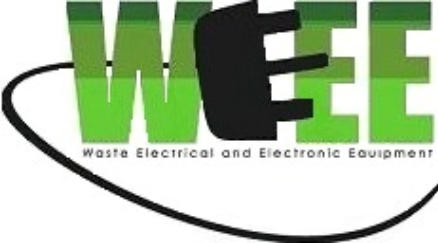




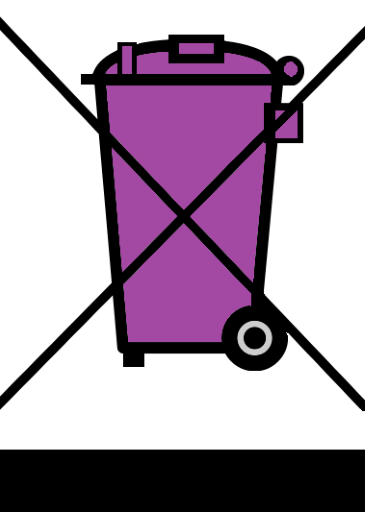


Electrical goods in landfill


